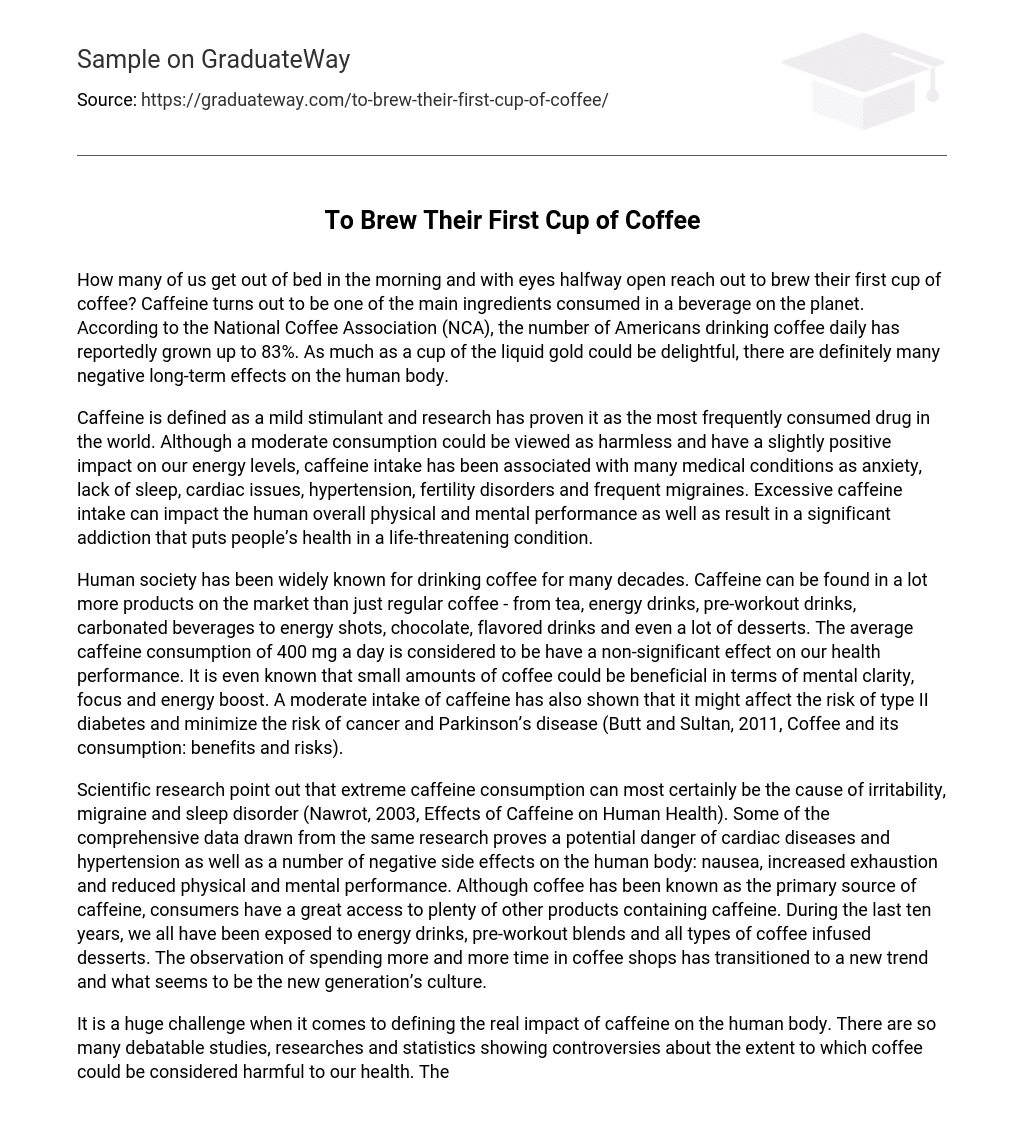How many of us get out of bed in the morning and with eyes halfway open reach out to brew their first cup of coffee? Caffeine turns out to be one of the main ingredients consumed in a beverage on the planet. According to the National Coffee Association (NCA), the number of Americans drinking coffee daily has reportedly grown up to 83%. As much as a cup of the liquid gold could be delightful, there are definitely many negative long-term effects on the human body.
Caffeine is defined as a mild stimulant and research has proven it as the most frequently consumed drug in the world. Although a moderate consumption could be viewed as harmless and have a slightly positive impact on our energy levels, caffeine intake has been associated with many medical conditions as anxiety, lack of sleep, cardiac issues, hypertension, fertility disorders and frequent migraines. Excessive caffeine intake can impact the human overall physical and mental performance as well as result in a significant addiction that puts people’s health in a life-threatening condition.
Human society has been widely known for drinking coffee for many decades. Caffeine can be found in a lot more products on the market than just regular coffee – from tea, energy drinks, pre-workout drinks, carbonated beverages to energy shots, chocolate, flavored drinks and even a lot of desserts. The average caffeine consumption of 400 mg a day is considered to be have a non-significant effect on our health performance. It is even known that small amounts of coffee could be beneficial in terms of mental clarity, focus and energy boost. A moderate intake of caffeine has also shown that it might affect the risk of type II diabetes and minimize the risk of cancer and Parkinson’s disease (Butt and Sultan, 2011, Coffee and its consumption: benefits and risks).
Scientific research point out that extreme caffeine consumption can most certainly be the cause of irritability, migraine and sleep disorder (Nawrot, 2003, Effects of Caffeine on Human Health). Some of the comprehensive data drawn from the same research proves a potential danger of cardiac diseases and hypertension as well as a number of negative side effects on the human body: nausea, increased exhaustion and reduced physical and mental performance. Although coffee has been known as the primary source of caffeine, consumers have a great access to plenty of other products containing caffeine. During the last ten years, we all have been exposed to energy drinks, pre-workout blends and all types of coffee infused desserts. The observation of spending more and more time in coffee shops has transitioned to a new trend and what seems to be the new generation’s culture.
It is a huge challenge when it comes to defining the real impact of caffeine on the human body. There are so many debatable studies, researches and statistics showing controversies about the extent to which coffee could be considered harmful to our health. The amount of caffeine in a certain product is not necessarily required to be shown on the label. Even if some brands choose to include that content, it is still not a reliable source of information as the caffeine might be up to three times more than what has been exposed in the ingredients. A relatively stable suggestion for the healthy caffeine intake for adults recommends less than 400 milligrams a day (Nawrot, 2003, Effects of Caffeine on Human Health).





